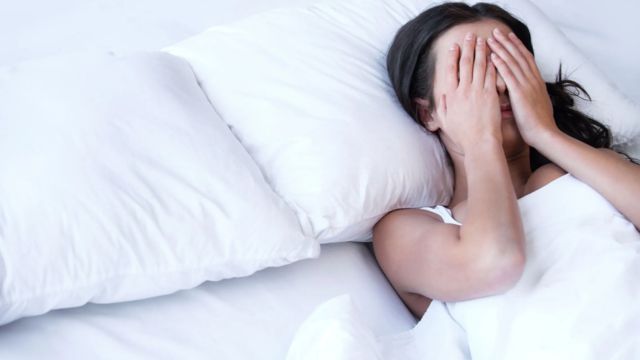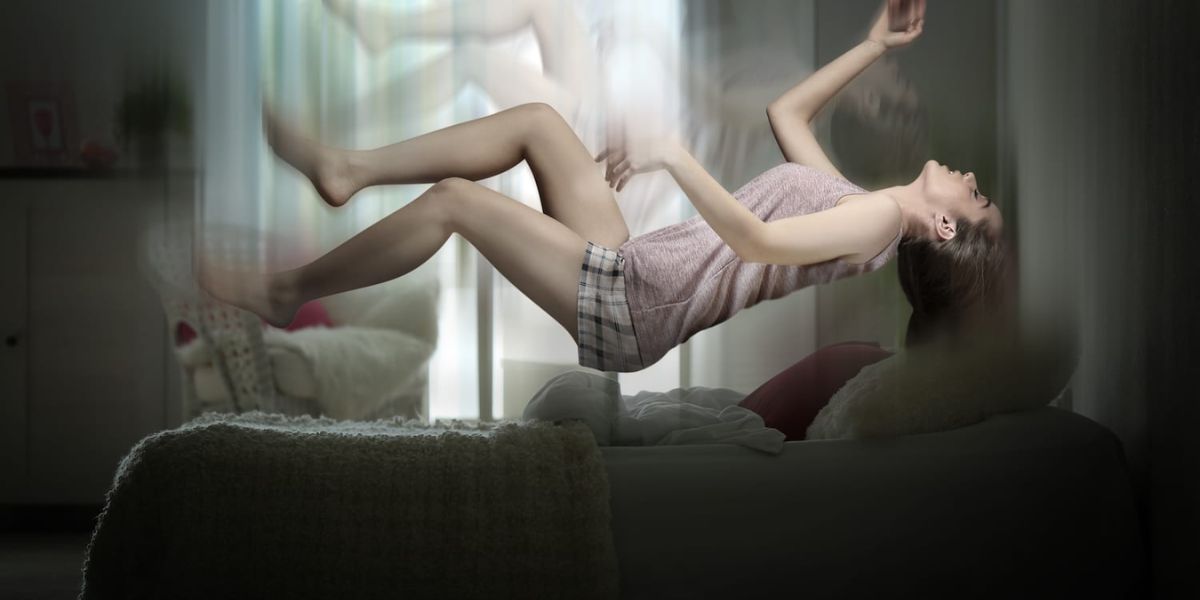Body Jerks While Falling Asleep? Here’s What That Twitch Really Means
If you’ve ever been on the verge of falling asleep, only to feel a sudden, involuntary twitch or jerk of your body, you’re not alone. This phenomenon, known as hypnic jerks or sleep starts, is a common occurrence that can startle you awake just as you’re drifting off into a peaceful slumber.
While it may feel alarming or puzzling, it’s typically harmless. But what exactly is happening in your body when this sudden twitch occurs?
What Are Hypnic Jerks?
Hypnic jerks are involuntary muscle contractions that occur as you’re transitioning from wakefulness to sleep. These jerks, which can range from mild twitches to more pronounced movements, tend to happen during the light stages of sleep, just as your body relaxes and prepares to enter deeper sleep.
While they’re often referred to as “sleep starts” or “sleep twitches,” these movements are a normal part of the sleep cycle and occur in many people. In fact, studies suggest that about 60-70% of people experience hypnic jerks at some point in their lives.
Why Does Your Body Jerk?
The exact cause of hypnic jerks isn’t fully understood, but there are several theories that help explain this common phenomenon. Some of the leading explanations include:
- Relaxation of Muscles: As your body shifts into sleep, your muscles begin to relax, and the nervous system slows down. This relaxation can trigger a miscommunication between the brain and the muscles, causing a sudden jerk.
- Evolutionary Explanation: One theory is that hypnic jerks are an evolutionary mechanism. It’s thought that the body jerking may have been a protective response to prevent our ancestors from falling from trees or other dangerous heights while they slept. Although this instinctual response may not be necessary today, the body still occasionally carries out this reflex.
- Brain Activity: As you fall asleep, your brain shifts from being highly active to more subdued. This change in brainwave patterns can sometimes lead to the sensation of falling, which may cause your body to jerk to “catch” itself, as if trying to regain balance.
- Sleep Cycle Transition: Hypnic jerks tend to happen when you’re moving between different stages of the sleep cycle, particularly between light sleep (Stage 1) and deeper stages of sleep. This transitional period may trigger the twitching response as the body and brain adjust to new sleep patterns.
What Triggers Hypnic Jerks?

Though hypnic jerks are often random, certain factors may make them more likely to occur. Some of the common triggers include:
- Stress and Anxiety: High levels of stress or anxiety can interfere with your ability to relax before sleep, leading to more frequent or intense jerks. If your mind is racing or you’re feeling tense, your body may react with these sudden movements as you attempt to fall asleep.
- Caffeine and Stimulants: Consuming caffeine or other stimulants late in the day can interfere with your sleep cycle and make hypnic jerks more likely. These substances can increase brain activity, making it harder for your body to relax fully before sleep.
- Sleep Deprivation: Not getting enough sleep or irregular sleep patterns can increase the occurrence of hypnic jerks. Your body may be in a heightened state of arousal or overcompensating for fatigue, causing involuntary movements as you finally attempt to rest.
- Exercise: While regular exercise promotes better sleep overall, intense physical activity late in the day may increase muscle tension or cause the body to twitch more during the transition into sleep.
- Alcohol: Drinking alcohol, especially close to bedtime, can disrupt your sleep cycle and contribute to increased occurrences of hypnic jerks. While alcohol may initially help you relax, it can actually interfere with deep, restful sleep, leading to disturbances like these twitches.
Are Hypnic Jerks Dangerous?
In most cases, hypnic jerks are completely harmless. They are a natural, temporary part of the sleep process and typically don’t cause any long-term health issues. However, frequent jerking or severe cases can disrupt sleep, leading to feelings of exhaustion or anxiety. If you wake up feeling fatigued or have trouble falling asleep due to persistent jerks, it might be worth exploring potential lifestyle changes or stress-management techniques to reduce their frequency.
In rare cases, if the jerks are accompanied by other symptoms, such as muscle pain, sleep apnea, or unusual sleep patterns, it might be worth discussing with a healthcare provider to rule out underlying conditions, like restless leg syndrome or other sleep disorders.
How to Reduce Hypnic Jerks
If you’re bothered by frequent hypnic jerks, there are several steps you can take to reduce their occurrence:
- Relax Before Bed: Establish a calming bedtime routine that encourages relaxation. Try activities like reading, gentle stretching, or meditation to ease your mind and body into sleep.
- Manage Stress: Practice relaxation techniques such as deep breathing, yoga, or progressive muscle relaxation to reduce stress and anxiety levels, particularly before bedtime.
- Limit Stimulants: Avoid caffeine, nicotine, or heavy meals in the hours leading up to bedtime, as these can interfere with your ability to fall asleep smoothly.
- Establish a Sleep Schedule: Try to go to bed and wake up at the same time every day to regulate your sleep patterns. A consistent sleep schedule can help your body transition into sleep more smoothly and reduce the chances of hypnic jerks.
- Exercise Regularly: While it’s important to avoid vigorous exercise right before bed, regular physical activity during the day can improve sleep quality and reduce stress, making hypnic jerks less likely.
Conclusion
Hypnic jerks are a common, typically harmless phenomenon that many people experience while falling asleep. While they may feel unsettling, they are usually nothing to worry about.
By managing stress, establishing a regular sleep schedule, and making adjustments to your pre-sleep routine, you can reduce their frequency and improve the quality of your rest.
If these jerks become disruptive or are accompanied by other symptoms, it’s always a good idea to consult a healthcare provider for further guidance.

